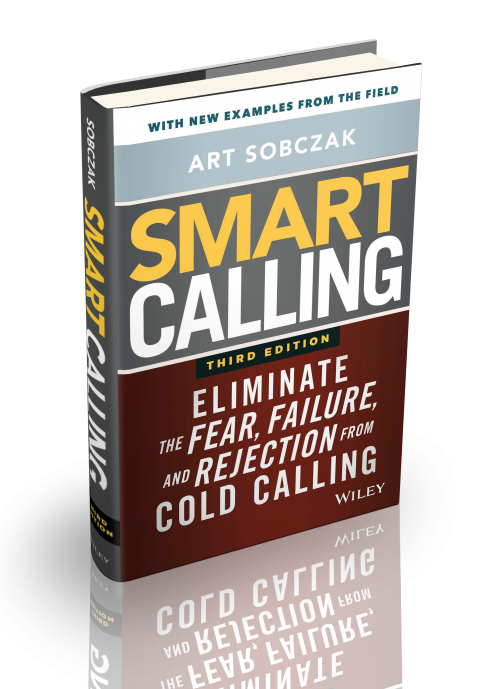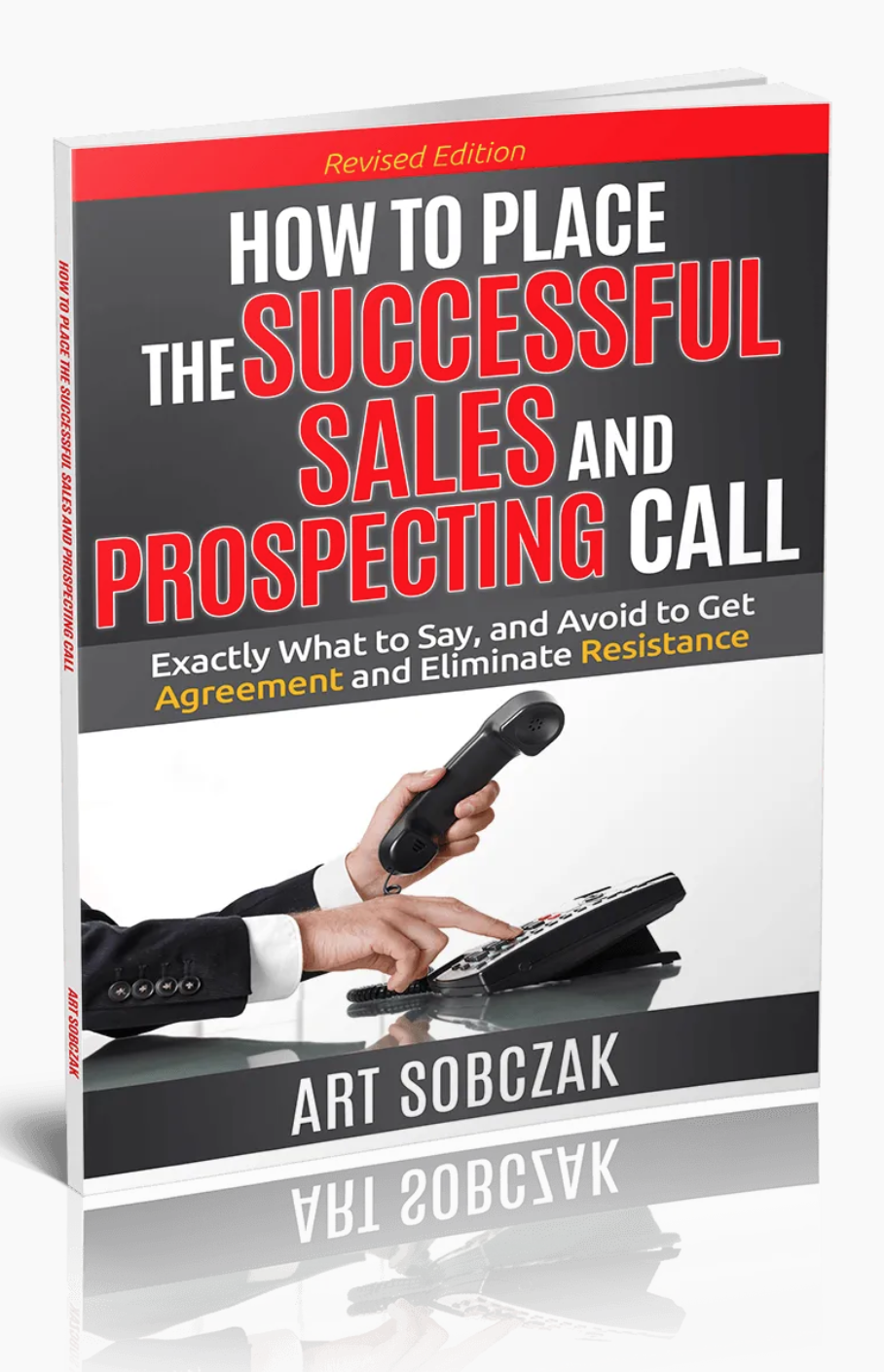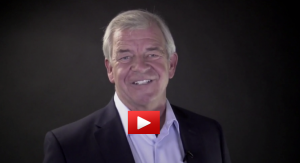Here’s a great guest post by Jeb Blount, Author of "People Buy You."
_______________________________________________________
The secret to opening a conversation with a stranger is not what you say but rather what you ask.
Among the most difficult (and scariest) things to do in life is making small talk with total strangers. Yet in business we are forced to do this every day as a core part of our jobs – especially when selling over the phone. Every first time appointment or meeting with a customer, prospect, or new colleague requires us to initiate a conversation with a stranger. For some people this part of the meeting is so uncomfortable that they would rather get a root canal instead.
Of course, most people don’t take the time to put themselves in the others person’s shoes and consider about how uncomfortable they must feel too. Like you, they are meeting a stranger and being forced to make small talk. They also have their guard up because a) they don’t want to be sold or manipulated and b) they are prepared for a “snappy line” or intrusive personal questions. Frankly, first time meetings are as hard or harder on others as they are on you. We are all human and as I said earlier, meeting strangers is one of the scariest things we do in our lives.
So consider this: What if, the key to making small talk and beginning the relationship building process is simply helping the other person feel at ease?
You see, the secret to opening a conversation with a stranger is not what you say but rather what you ask. Unfortunately many people waste time, energy and emotions trying to come up with a line or a joke to break the ice and relieve the inevitable tension when new people. Unfortunately, these practiced lines just make things worse. Others see right through these contrived statements that lack authenticity. They know, and you know, that the gesture is not sincere. So you both do your best to get past the awkward silence and on to business. However, because you failed to create a connection it will be difficult to have an open, sincere and honest conversation.
However asking a question, instead of making a statement, takes advantage of one of the universal laws of human nature and engages your counterpart right from the start. All people have one insatiable craving and that desire is to feel important, valued, and heard. The most effective way to engender these feelings in another person is to simply listen to them. When you ask a question, you provide an opportunity for the other person to become the center of the conversation. And by giving them your genuine attention and interest you are giving them the greatest gift of all – the feeling of importance. When this happens you will quickly develop an emotional connection. Your prospect will feel at ease and your conversation will almost always be successful.
You must be careful with your first questions though. Imagine sitting on a plane, bus, or in a public place when a perfect stranger walks up to you and starts asking personal questions about your family. How would that make you feel? In all likelihood your walls would go up and you would have the overwhelming desire to get away.
So the key is to ask questions that are easy to answer and the other person will enjoy answering. For example, if you have done research prior to your visit and you know that they or their company have recently won an award or been honored, ask about this.
Once they begin talking listen deeply with your eyes, ears and heart. Give them your complete attention. As you listening you will discover clues that lead to follow up questions that keep them talking. The more they talk and the more you listen the stronger the connection. Soon, with the connection you have made, you’ll find that the other person no longer seems like a stranger and you will be able to smoothly transition into a comfortable, substantive conversation.
(Jeb Blount is the CEO of SalesGravy.com, the most visited sales website on the internet. A respected thought leader on sales and sales leadership, he is author of three books, People Buy You: The Real Secret to what Matters Most in Business, Sales Guy’s 7 Rules for Outselling the Recession, and Power Principles. He is the author of more than 100 articles on sales and sales leadership and the host of the top rated Sales Guy Podcast. When you buy Jeb’s new book, People Buy You, today, you’ll also receive thousands of dollars worth of bonus gifts from sales growth leaders – learn more at www.PeopleBuyYou.com.)













{ 2 comments… read them below or add one }
I really liked this article. I never have issues with going and selling other sales people, but I have an issue when I am prospecting those who aren’t sales people. If I am not trying to for business, I can break the ice easy as pie, but with business it’s like BAM!
I sell a little bit differently than most however, I prospect in public while I am out. Essentially I judge the book by the cover (are they well groomed, dressed professionally, etc.). If they are I just say “hey.” If they say “hi” back, then I just go on to genuinely say what ever my thoughts about they day are as in “some weather out there isn’t it?” “Chilly day isn’t it?” or something like “how is your day going?”
I add a bit of my personality of course, because again I am being genuine, and I am naturally extroverted.
My ice breaker is “hi,” is the point.
some say hi back, then I continue great!
some ignore me, and go hmph, great the conversation has ended. I generally get about 20 contacts a day with this and the rest of my method with a conversion of about 50% to 60%…. With my products and expansions, this is outstanding.
I am going to look at some of your other stuff, this gave me a mental high, then like cut me off at the neck when it ended…
Chris
Chris, I think you personality is what gets you where you want to go. Most of us who don’t have that personality have to work at it. I think you know so much about meeting people, that you do it so routinely you forget the details of what you do. You have forgotten how to describe most of which we want to learn.
Jackson
{ 1 trackback }